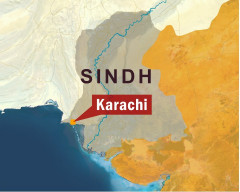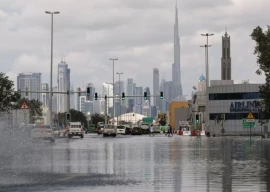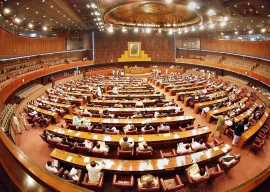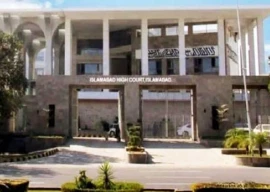
Not only is the tit-for-tat game between Pakistan and India to arrest fishermen continuing, it is also now taking an ‘inhuman’ turn. Earlier, authorities dragged their feet on exchanging fishermen arrested in either country; now, the bodies of these fishermen wait months to be returned to their respective homelands.
The death of Dhikha, an Indian fisherman who passed away in Landhi Jail about a month ago indicates the extent of the problem. Authorities in both countries have repeatedly failed to hand over the remains of fishermen quickly. A spokesperson for the Edhi Foundation said Dhikha, aged 42, has been in their morgue since December 22, 2013. He was arrested along with 12 other fishermen thirty nautical miles inside the Pakistani border in November last year. He passed away in Landhi jail while awaiting trial.

“The families of the deceased fishermen in both countries are constantly in touch with us. We have written more than one dozen letters to Pakistani and Indian foreign ministries, high commissions and human rights organizations requesting a uniform policy so that bodies of deceased fishermen can be received by their loved ones as soon as possible,” said Muhammad Ali Shah, Secretary General of World Forum of Fisher People (WFFP), a representative body of the fishermen working in South Asian countries. Shah referred to a recent case wherein the body of an Indian fisherman was dispatched to his home country only after the Indian government returned the remains of a Pakistani fisherman, Nawaz Jat, arrested in 1993.
Nawaz Jat, who belonged to Ibrahim Hyderi, Karachi, was arrested with 19 other crew members and sentenced to life imprisonment by an Indian court on multiple charges. After civil society organizations challenged the verdict, the apex court decreased his sentence to 15 years imprisonment. While his family members anxiously counted down the days to August 2013, they received the news of his death in Gujrat Jail just months prior to his release. His body was returned to Pakistan two months after his demise.
“Another fisherman has reportedly passed away a month ago in India, but despite all our efforts there has been no progress in recovering his body,” Shah said. “Earlier, the authorities were unwilling to exchange arrested fishermen, but now they are also not willing to exchange their bodies.”
Human Rights Commission of Pakistan’s Zohra Yusuf said that it was the moral responsibility of both countries to resolve this issue without allowing politics to hold sway. “We have been working on the issue and will continue to take it up with the authorities as it is a grave violation of human rights,” she said.
Pakistan and India recently shared a list of prisoners incarcerated in jails in both countries. Some 239 Pakistani fishermen are currently held in jails in Gujrat and other prisons in India, while 229 Indian fishermen are serving time in Pakistani jails.
Soon after the composite dialogue started by India and Pakistan, a judicial commission on prisoners was also formed in 2007. Four retired judges from both countries were appointed as members of the committees tasked to expedite the fishermen’s release. The committee, however, appears to be idle. Justice (retd) Nasir Aslam Zahid, one of the members of the committee, told The Express Tribune that the committee had to meet at least every six months, but this had not happened. He said authorities in both countries were still using old procedure to identify prisoners. “They write to the jail superintendent, IG jails, provincial home department, foreign ministry and so on, a procedure that is time consuming.” He added that “If committee had met, this issue would have been resolved within days.”
Currently, most bodies of fishermen who are not exchanged by either country are buried outside of their homelands.
Published in The Express Tribune, January 25th, 2014.
COMMENTS (1)
Comments are moderated and generally will be posted if they are on-topic and not abusive.
For more information, please see our Comments FAQ













































Very sad..